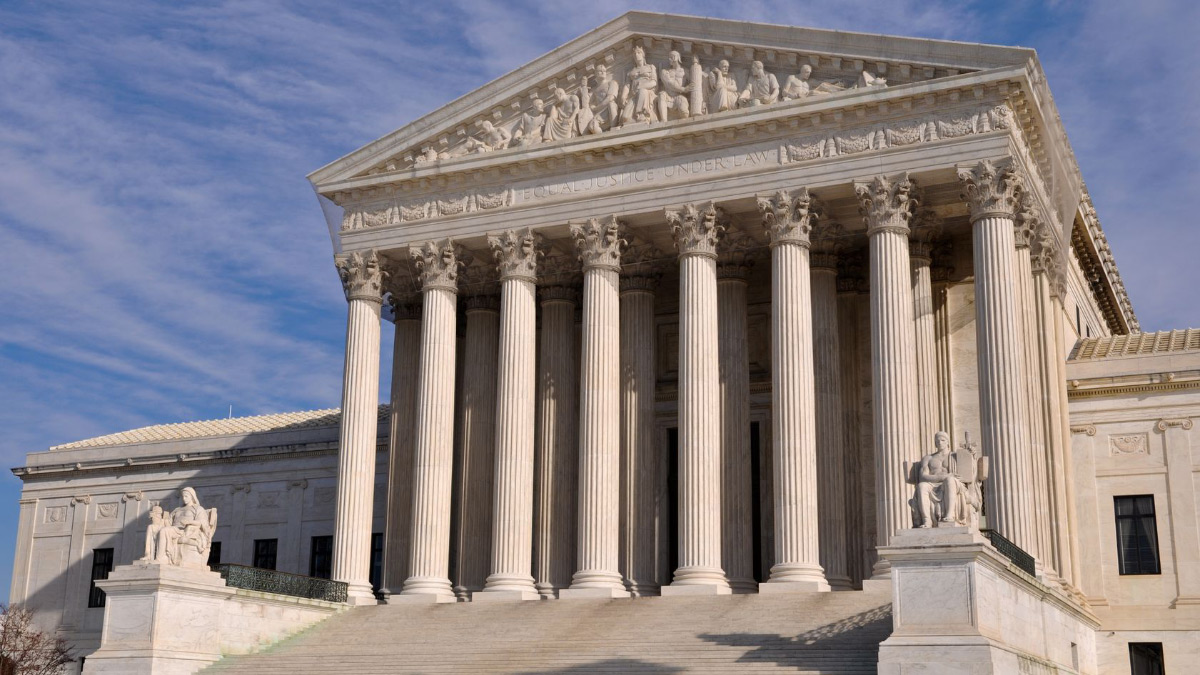John Yoo, professor of law at UC Berkeley, has published the thorough treatise, “The Law Will Be on Trump’s Side If He Declares an Emergency to Fund His Wall”, this month in National Review. Pursuing Yoo’s argument to the end suggests the U.S. Supreme Court’s final decision will rest with Chief Justice John Roberts.
The House of Representatives will vote Tuesday on a resolution to block the president’s declaration of a border emergency. It is almost certain to pass, although its fate in the Senate is unclear. If it passes the Senate, President Trump will certainly veto the resolution and the matter of declaring an emergency to build a border wall is likely to wind up before the Supreme Court.
The court is comprised of four liberals and five conservatives, though Roberts has at times become the swing vote. He broke from conservatives in supporting the individual mandate of the Affordable Care Act, and he defended federal funds to Planned Parenthood.
In 1976, Congress enacted the National Emergency Act. Since then, presidents have unilaterally declared 58 national emergencies. Yoo observes, “Every president since 1976 has used the NEA to declare a national emergency, several under circumstances far less immediate than this one, and the Supreme Court has never overturned one.”
Think about why: National security is not the judges’ job; they are not experts on that matter. Yoo adds, “The Supreme Court would likely give the president the broadest deference to decide whether any construction project, even a border wall, satisfied this statutory language” of “national defense.”
Then, the closing argument: “Our Framers explained that they vested the whole executive power of the federal government in a single person, the president, so that the nation would not be disabled from responding forcefully to emergencies.”
Two germane authorities are invested in the president: one, the power to transfer funds to a construction project, such as a wall, after a declaration of emergency. Two, the power, through the secretary of Defense, to reallocate funds from military construction projects. The language for these two powers reads:
“In the event of ... the declaration by the president of a national emergency in accordance with the National Emergencies Act that requires use of the armed forces, the Secretary of Defense, without regard to any other provision of law, may undertake military construction projects, and may authorize the secretaries of the military departments to undertake military construction projects, not otherwise authorized by law that are necessary to support such use of the armed forces.”
And, “In the event of a declaration... by the president of a national emergency in accordance with the National Emergencies Act that requires or my require use of the Armed Forces, the Secretary, without regard to any other provision of law, may (1) terminate or defer the construction, operation, maintenance, or repair of any Department of the Army civil works project that he deems not essential to the national defense, and (2) apply the resources of the Department of the Army’s civil works program, including funds, personnel, and equipment, to construct or assist in the construction, operation, maintenance, and repair of authorized civil works, military construction, and civil defense projects that are essential to the national defense.”
Yoo emphasizes: “Congress has authorized a wall and other security measures at the border, it has not passed any law forbidding such a wall, and the president has invoked delegated powers to continue the wall’s construction.”
Yoo concludes that presidents have constitutional authority to declare emergencies and that Congress enhanced that authority with the right to reallocate spending, and thus the Supreme Court will almost certainly agree.
To all those critics who may find these constitutional sources disingenuous, recall that President Barack Obama, through unilateral executive authority, and without the approval of or funding from Congress, created the Affordable Care Act.
This unilateral authority has worked on both sides of the political aisle 58 times since 1976. And it mostly likely will work for the president this time. President Trump will get his wall.








